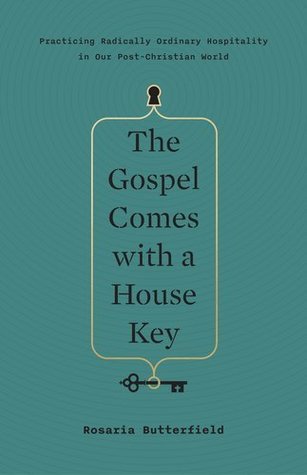More on this book
Community
Kindle Notes & Highlights
Read between
February 8 - March 4, 2021
Jesus dined with sinners, but he didn’t sin with sinners. Jesus lived in the world, but he didn’t live like the world.
First, we must live under the authority of God and church if we are to call others to live differently. We must be active, tithing members of a Bible-believing church, under her covenant of church membership, and willing to receive instruction and rebuke if needed. We must be teachable. We have no business calling our neighbors to live differently if we don’t. Second, we must
We know that chronic loneliness can kill people and destroy their hope and faith. We
But radically ordinary Christian hospitality must be rooted and steeped in grace: church membership, private prayer and fasting, solitude, repentance, Bible reading, Scripture memory, and worshipful singing.
The inherent goodness of self (as Rousseau taught), the priceless progress made by science after Darwin, the advantageous understanding of personhood developed by psychology after Freud, and the equitable socialist culture of economic fairness after Marx all proved to me beyond a shadow of a doubt that human autonomy—leaving consenting adults alone to do what they feel is best—is central to human flourishing and a healthy, happy world. Why Christians would not leave consenting adults alone to flourish and be joyful was beyond me. So I sat in my truck in the driveway of this Christian home,
...more
Jesus comes to change us, to transform us, so that after we have dined with Jesus, we want Jesus more than the sin that beckons our fidelity. And now, in the passage that completes this scene, Jesus rebukes the Pharisee:


